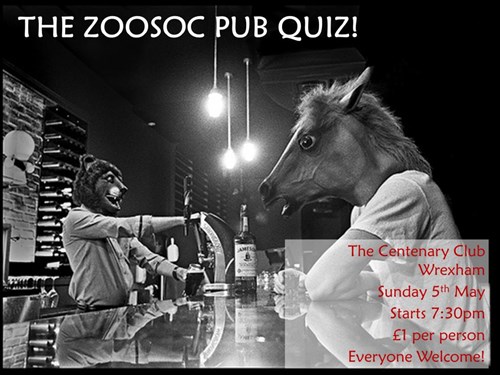Group Size
?
1.) Small group (teams of 4-6)
2.) Individual Task
3.) Large Group
4.) Any
Any
Learning Environment
?
1.) Lecture Theatre
2.) Presentation Space
3.) Carousel Tables (small working group)
4.) Any
5.) Outside
6.) Special
Any
QAA Enterprise Theme(s)
?
1.) Creativity and Innovation
2.) Opportunity recognition, creation and evaluation
3.) Decision making supported by critical analysis and judgement
4.) Implementation of ideas through leadership and management
5.) Reflection and Action
6.) Interpersonal Skills
7.) Communication and Strategy
1Creativity and Innovation
2Opportunity recognition‚ creation and evaluation
3Decision making supported by critical analysis and judgement
4Implementation of ideas through leadership and management
5Reflection and Action
6Interpersonal Skills
7Communication and Strategy
Student clubs and societies can be a great means for students from any level or programme of study to gain invaluable enterprise skills. Through taking responsibility for a club a society, students are required to demonstrate effective team working, excellent management skills, excellent administrative skills and financial literacy, communication and marketing skills, and must have the ability to successfully devise, plan and deliver projects and activities to keep their members engaged.
Clubs and societies can be for students from any programme of study, run exclusively for students from a particular programme, and include students, alumni, staff and members of the general public.
For the small cohort of students studying towards a BSc in Animal Studies at Glyndwr University, forming a departmental society (Zoo Soc) was an ideal way to bring the cohort together, and provide a range of extra-curricular social and learning opportunities.
In Spring 2013, students from the BSc (Hons) Animal Studies programme at Glyndwr University, approached Glyndwr University Students Guild regarding establishing 'Zoo Soc' at the institution.
The society was to cater primarily to students (at all levels of study) from the Animal Studies programme, but open to membership from staff, alumni, andstudents from any course with an interest in animals and zoology.
The students nominated a president, vice president, two secretaries and a treasurer to run the society, and promoted the new society to their peers, gaining enough support in the form of signatures to be constituted as a Students' Guild Society.
There after the students took responsibility for all aspects of Zoo Soc's management and administration. This was inclusive of promoting the society and its events, promoting society membership, conducting meetings of society members and officers, organising activities and events, and raising and managing funds. The Students Guild offered support to the students through all of these processes.
Zoo Soc's first event was a Pub Quiz, held at the University's student bar, and aimed at developing relationships between students from Glyndwr’s main campus, and its rural campus (situated approximately 20 miles away). The event was a success, and the revenue and new membership gained through the event went on to directly support future events, including trips to Zoo’s, Museums and other events.

Figure 1. Promotions poster for Zoo Soc's first event
2 year after the society's establishment, approximately 100 students are engaging with the Zoo Soc and its events, which have continued to be delivered in a professional and financially sustainable way.
For all learners who have engaged with the society, there have been countless opportunities to network, increase their knowledge, and exchange and create ideas.
For those leading the society the outcomes have been far greater, developing a broad range of enterprising skills in the process, whilst directly supporting their academic subject knowledge.
With thanks to Glyndwr University Students Guild.